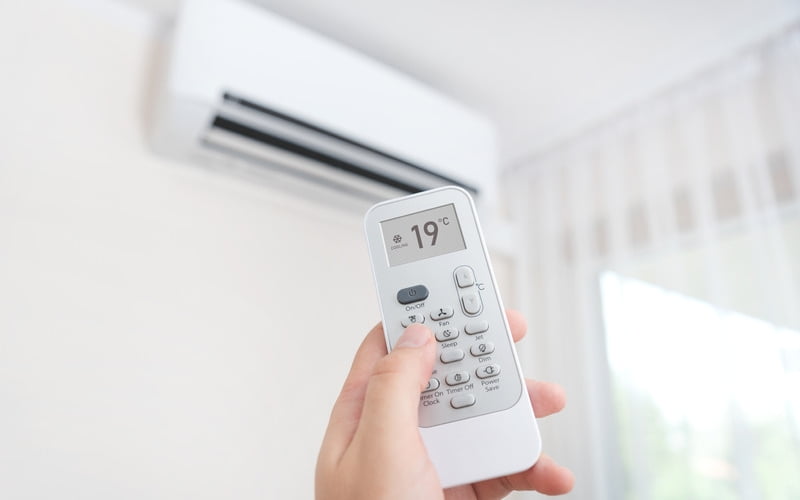Last Updated on March 18, 2024 by Kelvin Nielsen
Whether your landlord is evicting you or you’re moving out of your own volition, here is a guide on California renters rights when moving out!
California law CA Civil Code 1940-1954.06 gives tenants certain rights and responsibilities after establishing a lease with a landlord. Among other things, you have a right to the return of your security deposit and a right to be present during a pre move-out inspection.
You can read more on California renters’ rights in this comprehensive guide.
You are also responsible for a number of things when looking to move out. Including, cleaning the property, and serving the landlord with proper notice.
In today’s blog, we’ll dig deeper into what rights and responsibilities renters have in California when looking to move out. This way, you’ll be able to avoid potential legal and/or financial issues with your landlord.
California Renters’ Rights When Moving Out
#1: Right to the return of your security deposit.
Most landlords in California require tenants to pay a security deposit as part of the initial move-in costs. The maximum deposit a landlord can charge a tenant for a furnished rental is 3X the monthly rent. For unfurnished rentals, the maximum deposit is 2X the monthly rent.
Now, when you’re moving out, you have a right to the return of your deposit, less allowable deductions. The landlord must do so within 21 days of notifying them of your intentions to leave.
The deductions (if any) must be legitimate. In addition, the landlord must provide you with the documents and receipts showing the actual charges incurred for things like labor and materials.
Here is a guide on what you can do if the landlord does not return the security deposit in 21 days.
#2: Right to a Pre Move-Out Inspection.
Under California law, tenants have a right to be present during a move-out inspection. Your landlord must provide you a written notice indicating your right to request a pre-move out inspection.
The following are some of the things that your landlord must do during the pre-move out inspection.
- Notify you in writing of their intention to carry out the inspection. They must do this no sooner than 2 weeks before the expiry of the tenancy.
- Your right to be present during the inspection exercise.
- A 48 hours’ written notice before the inspection, notifying you of the specific date and time of the exercise.
- A list of all repairs that you’ll need to do before moving out.
#3: Right to a proper notice before lease termination.
Is your landlord ending your periodic lease? If so, before requiring you to move out, the landlord must serve you a proper notice.
If you are paying rent on a weekly basis, the landlord must serve you a 7 days’ advance notice. If paying rent on a monthly basis, the landlord must serve you a 30 days’ advance notice.
#4: Right to sue for wrongful eviction.
What’s your reason for moving out again? If the landlord wants you out, then they must have a legitimate reason to do that. They cannot just evict you for no reason.
Under California laws, a landlord can only carry out two types of evictions: a just cause eviction or a no-fault eviction. A just cause eviction is where a tenant has committed a lease violation, such as stopped paying rent or caused damage exceeding normal wear and tear. A no fault eviction is one where the eviction isn’t caused by tenants’ actions, such as when the landlord is looking to renovate the property.
And even then, the landlord must follow proper eviction procedures. Including, serving the tenant with the proper notice and obtaining a court order. The landlord must not engage in wrongful eviction procedures, such as evicting you for retaliatory or discriminatory reasons, or carrying out a “self-help” eviction action.
#5: Right to proper notification before landlord entry.
Just because you are moving out doesn’t mean that your landlord can start walking into your rented premises unannounced. If the landlord wants to show the property to a prospective tenant, they must still conform to California landlord entry laws.
For one, the landlord must provide you a legitimate reason for entry. Aside from wanting to show the property to a prospective tenant, other legitimate reasons for entry include:
- To inspect the unit.
- To respond to an emergency.
- To make requested repairs or maintenance.
Two, other than having a legitimate reason, the landlord must also provide you a 24 hours’ advance notice, unless when respond to an emergency. The notice must be in writing.
California Renters’ Responsibilities When Moving Out
Renters have a number of responsibilities when looking to move out of their rental properties. To avoid potential legal and/or financial ramifications, you must do the following before moving out.
#1 Responsibility: Give the landlord proper notice.
Notify the landlord of your intentions to leave the property. This is especially true if you’re operating a periodic lease agreement, such as a month-to-month lease.
The amount of notice to give your landlord will depend on how frequently you pay rent. If paying rent on a week-to-week basis, you must provide your landlord with a notice of at least 7 days before moving out.
If paying rent on a month-to-month basis, you must provide your landlord with a notice of at least 30 days before moving out. There are statutes on the notices needed for rent paid on a quarterly or yearly basis under state law.
However, if you are on a fixed-term lease, you have no obligation to notify your landlord before moving out. The only exception here is if the lease specifically mentions that you must do so. That said, it is still good practice to do so nonetheless. It may, among other things, help you get back your deposit (or whatever portion remains) quicker.
#2 Responsibility: Clean the property.
Obviously, it’s your responsibility to return the property in a good state of cleanliness. Check the lease for the exact specifications. If the lease requires that you leave the premises “broom clean”, then you may only need to sweep or vacuum the floors and remove your personal belongings.
However, if the lease requires that you leave the property in a “move-in ready” condition, then you may need to do a thorough cleaning. For example, scrubbing the bathrooms and deep-cleaning the carpets. (Here is a guide on the landlord carpet replacement law in California.)
If you fail to meet the required cleanliness standards, the landlord may be able to make appropriate deductions on your security deposit.
To avoid potential issues, read the lease agreement carefully to understand your obligations. You may also want to document the property’s condition before moving out should the landlord allege that you left the property in a dire state.
Below are some tips to help you clean the property before moving out.
- Remove all of your personal belongings.
- Clean the walls and floors.
- Clean the carpets.
- Take out the trash.
- Dust all the surfaces, including the blinds, light fixtures, and furniture.
- Clean the windows and mirrors.
#3 Responsibility: Provide the landlord with a forwarding address.
While this isn’t a legal requirement for tenants in California, it’s good to do so nonetheless. That’s because it’ll help the landlord send you important information, including your security deposit refund or any repairs that need to be done to the property.
Conclusion
There you have it – California renters’ rights when moving out. Knowing what your rights and responsibilities are will help you avoid potential conflicts with your landlord, as well as ensure the return of your security deposit.
Disclosure: The content herein isn’t a substitute for advice from a professional attorney. It’s only meant to serve educational purposes. If you have a specific question, kindly seek expert attorney services.
Sources: CA Civil Code 1940-1954.06, California Civic Code 1950.5., Landlord Entry Laws,

Hi, I’m Kelvin Nielsen, an experienced landlord and accomplished real estate lawyer. My focus is on answering your questions about renting in the hopes of making your life as a renter or a landlord a bit easier.







